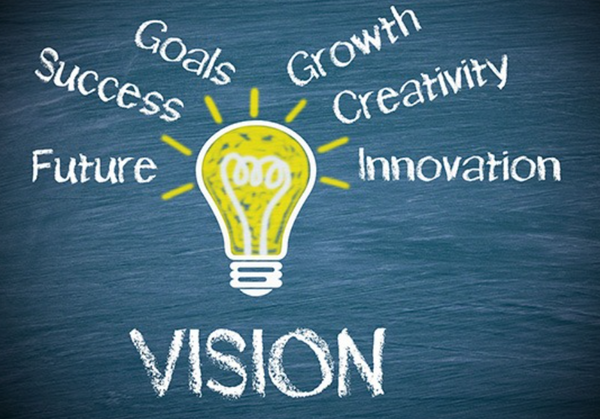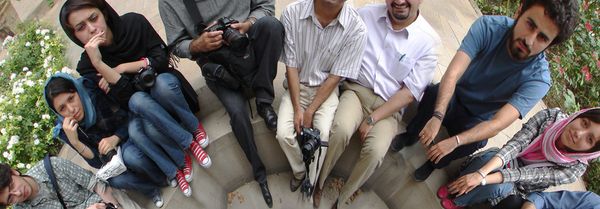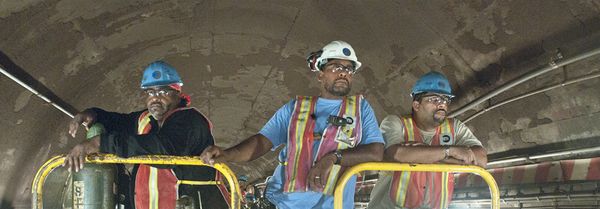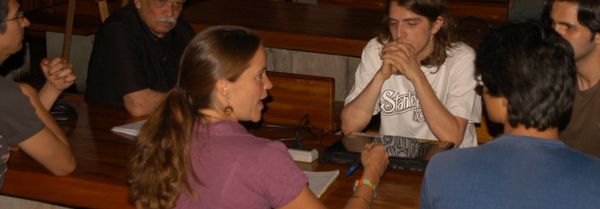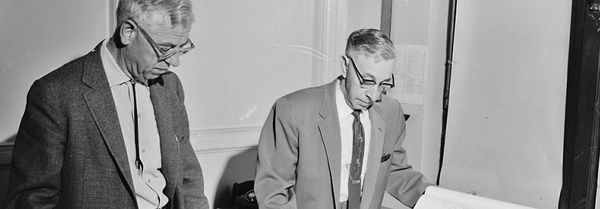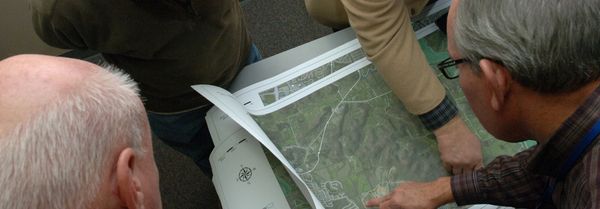Coach
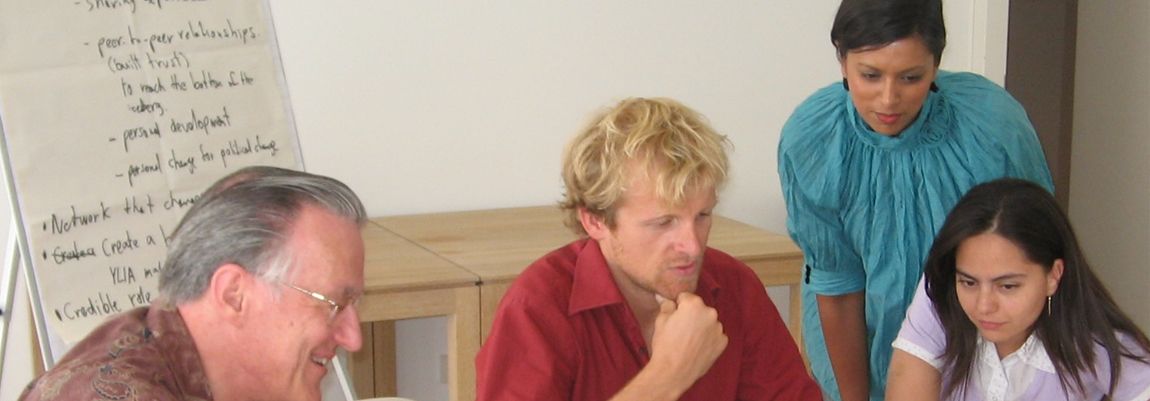
I call the following advice "Coach's Corner"—short bits of key advice for activists and wanna-be's. Some of it comes from Giraffe Heroes— the change agents honored by the Giraffe Heroes Project for sticking their necks out for the common good (these people know what they're doing!) Some of it comes from my fifteen years as a negotiator and problem-solver for the US Foreign Service. Most of it comes from subsequent decades as a citizen activist, and writer, speaker, blogger and coach on the subject of creating change.
#1 — MOTIVATION: HOW TO GET IN THE GAME AND STAY THERE
John Graham
The first in a series of short insights into successful citizen activism by veteran change-maker John Graham
In a long career of helping people get good stuff done in their communities and beyond, I’ve worked out many ways to help activists and wannabees succeed—to see real change happen as a result of their efforts.
One key element is motivation.
Have you ever thought of getting involved in solving a problem you see but then backed off, thinking it would be impossible to make it better? Even if you see a way to succeed, the job could...
more#2 —WHICH CHALLENGE HAS YOUR NAME IN IT?
John Graham
Another short insight into successful citizen activism by veteran change-maker John Graham
Some time ago I went back for a reunion to the high school in Tacoma I graduated from. Nearly all my classmates were leading comfortable lives in business or the professions. They talked about their houses and their investments and how well their kids were doing.
But the classmate who most caught my attention was Tom. He’d been the "slow” one in our class, the butt of jokes. But for 30 years he’d been directing a social service agency in the worst area of Tacoma and had...
more#3 — HOW TO LAUNCH AN INITIATIVE FOR CHANGE
John Graham
Another short insight into successful citizen activism by veteran change-maker John Graham
It’s not just the national and global impacts of issues like Covid, global warming, racism, inequality and a rotten political system—that demand our attention these days. It’s the local impacts of these huge issues that often most affects the quality of our daily lives. How do we cut carbon emissions where we live? How do we counter the misinformation from anti-vaxxers waving signs in our faces—or deal with our city’s homeless—or with racist elements...
more#4 —HOW TO CREATE A FOCUSED, DO-ABLE PROJECT
Another short insight into successful citizen activism by veteran change-maker John Graham
OK, there’s a public problem that really concerns you. Maybe it’s the climate crisis or police violence. Or something else.
Concerns like these are so huge, you can feel stymied, unable to make a move beyond just venting on social media.
No need for that. There’s a path forward, and it’s to create a do-able project that will actually help solve the problem that’s keeping you up at night. Do-able as in, it can be pulled off in the time you have,...
more#5—THE IMPORTANCE OF VISION
John Graham
Another insight into successful citizen activism by veteran change-maker John Graham (Coach’s Corner #5)
When I was a sixth grader in Tacoma, Washington, waiting my turn at Travoni’s barber shop, I happened to pick up a magazine with a cover story about a place called Harvard. It was described as the best university in America. In the pictures, cool, confident young men were walking across Harvard Yard, obviously heading for lives of fame, money and power.
At that time in my life I was gawky, nerdy and terrified of speaking to girls. I was...
more#6—PICTURE SUCCESS!
John Graham
Because if your project’s vision for success isn’t powerful enough, it will be dead in the water.
Another insight into successful citizen activism by veteran change-maker John Graham (Coach’s Corner #6)
OK, there’s a public problem that’s really bugging you and you’re ready to put some real energy, time and resources into helping fix it. Maybe it’s the climate crisis or the curricula in your kid’s school or getting your candidate into office. Or something else.
So you swing into action!
Whoa! Not...
more#7 — Trust THEM? Are You Kidding?
John Graham
(Another insight into successful citizen activism by veteran change-maker John Graham)
Unless you’re Donald Trump or Ebeneezer Scrooge you gotta be happy that President Biden got his bipartisan infrastructure bill passed and that America will finally fix a decades-long backlog of repairs and upgrades.
But that infrastructure bill, in today’s super-polarized world, was the exception. Even though its benefits are hugely popular in red states and blue, there were still weeks of petty foot-dragging before House leaders finally dragged it through.
It...
more#8 — How to Build Trust (The Role of Caring)
Coach’s Corner #7 made the point that successful citizen activism often depends on individual people and/or small groups sticking their necks out to trust when no one else seems ready to take that risk. But how do you do that, especially if the people you’re up against are difficult?
Competence builds trust because it sets a standard. Both your allies and your opponents recognize your skills and experience; this makes miscalculations by any of them less likely and encourages straight talk. It also strengthens support for you from members of your own team. If they know how good you...
more#9 — How to Build a Team
Most of the public problems that cry for solutions today are complex and time-consuming. While change efforts are usually started by one or a few motivated people, long-term progress usually requires more than that. And it isn’t just the additional help that’s important. Given the power of the forces any citizen activist may confront, it’s simply too easy for one person to be marginalized. If you’re pursuing a cause by yourself, sooner or later those opposed to change are going to ask, if this is so important, why is she the only one making noise? Why don’t we just ignore him?
But...
more#10 — Team Structure
Nobody wants more structure on a team than is necessary. If overdone, it stifles both energy and creativity. But the need for structure grows with the size and complexity of the work. It’s crucial, early on, for the team to reach agreement on the five elements listed below:
• choosing leadership
• internal communications
• external communications
• decision making
• record keeping
The agreement doesn’t have to be signed in blood, but it should be formally written down in some form of minutes or bylaws that all agree to. Notto address these elements...
more#11 — How to Manage a Team (Part I)
The most important and most difficult aspect of managing a team is dealing with the people on it.
Focus first on relationships. How people get along can be crucial to the success of any team effort, especially if the task you’ve taken on includes stress-producing conflicts or obstacles. The minimum goal is to create working relationships good enough to promote open discussion and ready cooperation.
If all the members of your group don’t know each other at the outset, spend whatever time it takes at the first meeting—or set aside a special time—for everyone to get acquainted....
more#12 — How to Manage a Team (Part II)
On a team, match the right people with the right tasks. What people volunteer to do will often be a good guide, although of course it’s also important to make sure that each person has the skills and experience needed to do the job. Matching new people with more experienced people on the team both ensures the quality of the work and provides on-the-job training.
It’s useful for team members early on to talk to the whole team about what they see as their primary strengths and interests. This not only helps guide the distribution of tasks, but it also makes each person feel valued, it...
more#13 — Making a Plan (Part I)
This essay and the next are addressed to a team of activists. The information here, however, works equally well if you are on your own.
I’m assuming that you’ve identified a problem and created a project. You’ve formed a vision of the results you want. Now what?
Visions are about what you want. What’s still missing is how to get it. A vision that remains only a concept can do more harm than good, by raising expectations that will never be fulfilled. This essay and the next are about making a vision real by creating a plan for its fulfillment and putting that plan into...
more#14 — Making a Plan (Part II)
Budgets. If your project requires money, then the funding goal in your action plan must be based on a budget, as in estimated expenses matched against estimated sources of cash income. Here’s a stunner: unless you’re the federal government, the cash income must equal or exceed the expenses. A budget should also list items given to you (in-kind contributions).
All foundations and many major donors will ask to see a budget before they write you a check, so be thoughtful in developing one. Make sure that all cost and revenue items are included, and that you can justify the type and...
more#15 — Risktaking and Courage
Sticking your neck out as an active citizen is no video game---if things get tough, you can’t just press the reset button and start over. Taking a risk for the common good always means daring to act in the face of the unknown and always includes the possibility of hurt or loss. Reactions from peers can be cruel, and conflicts with people who like things the way they are can get nasty, especially if those people are in positions of authority. The risks that come with standing up for what you believe in are real. They can include:
• standing up for an unpopular idea when others are...
more#16 — Tips for Taking Risks as an Active Citizen
There are smart ways and not-so-smart ways to take risks. Smart is better.
Lower the Risks by Getting Better Information about Them
You may find out that some perceived risks aren’t risks at all, or are less significant than you first thought. People were afraid of eclipses when they thought eclipses were caused by an angry god. The risks disappeared when people learned that eclipses were predictable effects of the orbits of the moon, sun, and earth. You can improve your knowledge of the risks you see by questioning people more familiar with the situation than you are, and by...
more#17 — Finding Common Ground: Negotiating and Resolving Conflicts (Part I)
Finding common ground with other people does not mean finding absolute agreement. Common ground is shareable ground whose boundaries are marked by a range of actions that all can live with. You and your neighbor may not vote for the same political candidate, for example, but your shared belief in elections, free speech, and the democratic process is common ground.
Negotiating is a rational process for resolving differences and for finding common ground. It’s not just what diplomats and labor and management leaders do---all of us do it all the time. We negotiate with our spouses over...
more#18 — Finding Common Ground (Part II)
In Coach’s Corner #17 we began looking at some general principles for negotiating and resolving conflicts, including:
1. Winning at the Expense of Others Is a Poor Solution
2. Look below the Waterline.
Next up:
3.You’re in Charge of Your Emotions, No Matter What the Provocation
An out-of-control reaction increases your provokers’ control over you---and may cause a similar response in them, sending all of you over the edge.
I’m not suggesting you become emotionally dead. Showing your human side---joy, sadness, excitement---can be crucial to sustaining the...
more#19 Finding Common Ground: Negotiating and Resolving Conflicts (Part III)
In Coach’s Corner #17 and #18, we discussed these general principles:
1. Winning at the Expense of Others Is a Poor Solution
2. Look below the Waterline.
3. Building Trust Is Often the Key to Success
Next up:
4.You’re in Charge of Your Emotions, No Matter What the Provocation
An out-of-control reaction increases your provokers’ control over you---and may cause a similar response in them, sending all of you over the edge.
I’m not suggesting you become emotionally dead. Showing your human side---joy, sadness, excitement---can be crucial to sustaining...
more





